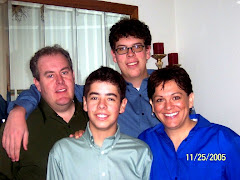 I hate snakes! One day, just before Bambino baseball, I passed by our basement door and saw a snake slithering into our first-floor hallway. It didn't matter to me that it was a common-variety garter snake--basically harmless--I freaked out. My husband was at work and I don't touch snakes, so I called the boys to the living room.
I hate snakes! One day, just before Bambino baseball, I passed by our basement door and saw a snake slithering into our first-floor hallway. It didn't matter to me that it was a common-variety garter snake--basically harmless--I freaked out. My husband was at work and I don't touch snakes, so I called the boys to the living room. "Boys, you have to get the snake out of the house." I said this to the boys in my most serious voice. I wanted them to know that the situation was dire and that they had to do something. They were around nine and ten years old. The boys looked at the snake and then back to me.
"What do you want us to do?" Evan asked. I'm pretty sure he knew what I wanted them to do. He was just stalling.
"You have to grab the snake and take it outside to the desert," I explained in my most calm voice.
"I can't," was Evan's sad response. He clearly wanted to help, but he was also as scared as I was.
"I need you to do this!" I was on my knees, with my hands on Evan's shoulders--I was begging.
Now, I realize that mothers generally put themselves between their children and harm, but these were snakes. And besides, it wasn't really harm--it was simply fear. I wanted my boys to move through their fear and get the snake out of our house.
Quinlan tried to step up. He ran out of the living room and returned a few minutes later wearing hip boots, oven mitts, and swimming goggles and carrying a golf club and an empty bucket. But when he moved toward the snake, the snake hissed.
Quinlan turned to me and said, "I can't do it."
"You have to. You have to get the snake out of the house." I insisted. But it didn't matter. My boys--the ones who had spent hours catching horned toads and lizards, who have eaten ants, who had baited hooks, and gutted fish--were not willing to catch a snake for their mother.
I was not willing to catch the snake either. The boys changed into their baseball uniforms and I took them to their game. When we returned home several hours later, the snake had moved from its position in the hallway and we could not find it.
We found the snake the next morning sunning in the dining room. My husband removed the snake to the desert.
I slept that night--and I allowed my boys to sleep that night--with a snake in the house. I'm not proud of that. But I still think they should have removed the snake and I think any mother worthy to be called a mother, would similarly expect her boys to take care of the snake.
 One evening, when Quinlan was about five, I served a meal that consisted of pork chops, mashed potatoes, and peas. When I asked Quinlan if he wanted gravy on his potatoes, he said, "I don't know--is there blubber in gravy?"
One evening, when Quinlan was about five, I served a meal that consisted of pork chops, mashed potatoes, and peas. When I asked Quinlan if he wanted gravy on his potatoes, he said, "I don't know--is there blubber in gravy?"






